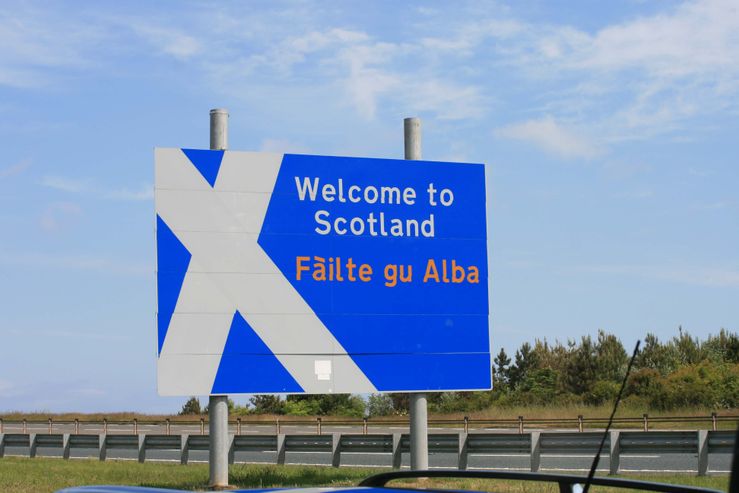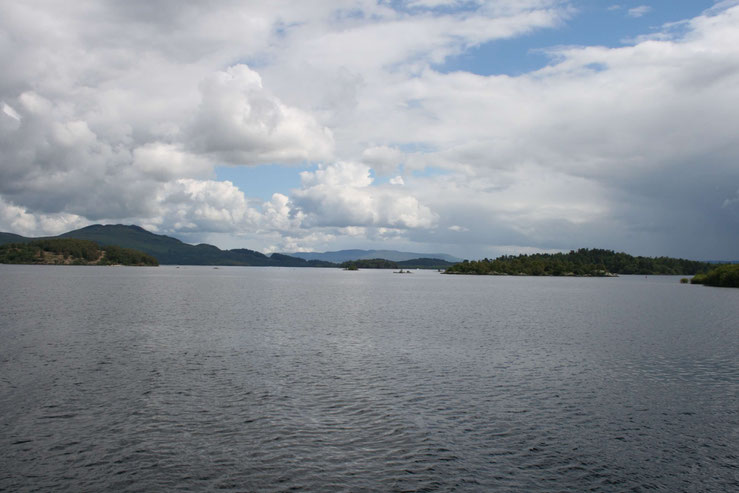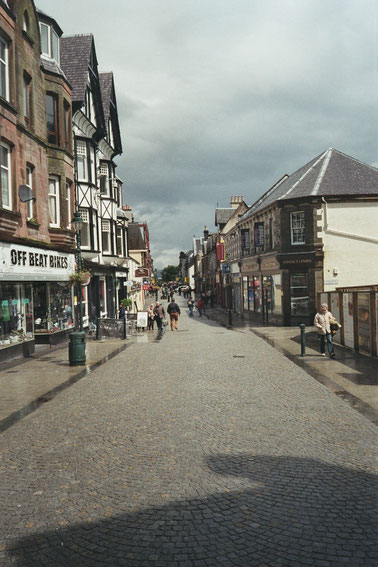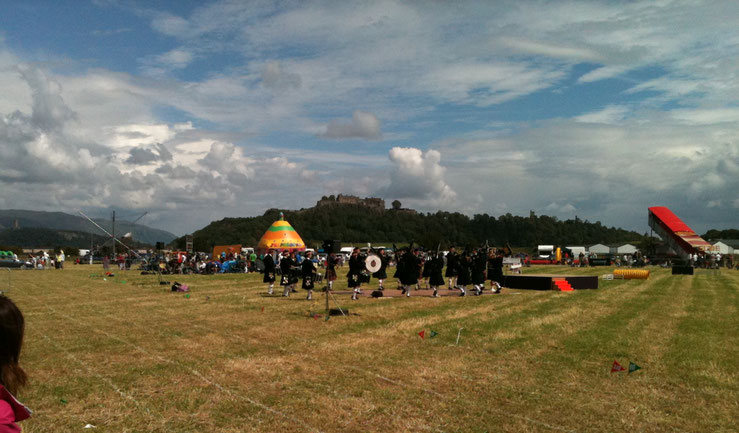
UPDATE 22 MARCH 2022
There are no more Covid-19 restrictions when travelling to Scotland,
regardless of your country of origin or vaccination status.
Still, some simple rules apply for the time being:
- Masks are mandatory on public transport and indoors
- You should take a regular rapid test before meeting with other people
-
If you have symptoms of Covid-19, you should book a test immediately through NHS Inform
or call 119 if you don't have access to the internet
UPDATE 22 FEBRUARY 2022
Boris Johnson has announced the end of all COVID-19 measures
(e.g. no quarantine after a positive test, no more contact tracing or sick pay etc.).
As Scotland may apply their own rules
please check the official COVID regulations in Scotland at www.gov.scot.
UPDATE 18 JANUARY 2022
On 4 January 2022, the UK changed into a high-risk area for travellers from Germany.
Different rules might apply for your country of origin.
Please check the official COVID regulations in Scotland at www.gov.scot.
UPDATE 21 DECEMBER 2021
And another update...
COVID regulations in Scotland have been sharpened again and Germany has also declared Scotland (or the UK in general) a risk country again so you now have to quarantine for two weeks on return.
Please check the official information about COVID in Scotland at www.gov.scot.
UPDATE 1 NOVEMBER 2021
The travel restrictions have sharpened again. You now need to self-isolate on arrival until you receive a negative test result.
Please check the official information about COVID in Scotland at www.gov.scot.
UPDATE 9 SEPTEMBER 2021
Please make sure what list (green, amber or red) your country is on before travelling to Scotland.
There are different measures in place depending on where you come from.
All official information about COVID in Scotland is available at www.gov.scot.
UPDATE 29 JULY 2021
From 2 August 2021, fully vaccinated travellers from the EU and the US will no longer have to quarantine in Scotland for 10 days.
PLEASE NOTE that these rules, however, do not apply to France.
People still need a negative test prior to departure and a negative PCR test on day 2 after arrival.
As documentation you need the EU Digital Covid Certificate or the US Centers for Disease Control and Prevention's white card (CDC).
As usual, the official information about COVID in Scotland is available at www.gov.scot.
UPDATE 12 MAY 2021
From May 17th, Scotland is going to lift some further COVID restrictions.
Most of the mainland will move to level 2, most of the islands (except Skye) will even go to level 1 (explanation of the individual levels can be found below). Moray and Glasgow remain in level 3, as the number of Covid cases is higher there.
Entries from abroad should still only be for absolutely necessary reasons and are subject to a "traffic light system".
So far, only very few countries are on the green list.
Entrants from countries on the yellow list have to self-isolate for 10 days and perform two PCR tests during this time.
Entrants from countries on the red list have to stay in a managed hotel quarantine for 10 days at their own expense, which they are not allowed to leave during this period.
There may be further easing in June.
As usual, the official information about COVID in Scotland is available at www.gov.scot.
UPDATE 20 APRIL 2021
On 16 April, some of the COVID restrictions were eased.
- People may now meet 6 people from up to 6 households plus children under 12 outdoors
- The national travel ban has been removed, but you may still not stay anywhere overnight
International travel is not allowed yet.
Official information can be found on the website of the Scottish Government .
UPDATE 17 MARCH 2021
Yesterday, Scotland's First Minister Nicola Sturgeon announced further ease of COVID restrictions in the coming weeks/months.
More people are allowed to meet in- and outdoors soon and shops, schools, other places will be allowed to go back to normal in several steps.
NATIONAL TRAVEL RULES
From 2 April, travel within local authority is possible for non-essential purposes.
From 26 April, travel within mainland Scotland can start again (tourist accommodation is allowed to open with restrictions in place).
INTERNATIONAL TRAVEL
So far, there is no new information on international travel to Scotland.
Restrictions might ease sometime around June 2021.
Official information on the new regulations can be found here.
Please watch this space for further updates.
UPDATE 24 FEBRUARY 2021
Scotland is now in temporary lockdown.
The regulations are to be revised every three weeks. A return to the old "level system" is expected from 26 April 2021.
Travel for touristic purposes is prohibited. A negative COVID test in English, French or Spanish must be presented before departure. Travellers have to stay in hotel quarantine for 10 days at their own expense with additional tests taking place on day 2 and day 8. Hotel quarantine is 1750 GBP/person including accommodation, meals and COVID tests.
You can find detailed information on the website of the Scottish Government or Visit Scotland.
International tourism is restricted so please check if restrictions apply to the country you are entering the UK from. If you are allowed to enter, you need to fill this online form at least 48 hours in advance. Fines apply if you don't or if you leave important information out.
Depending on what country you are coming from you might have to quarantine.
As Germany is in a partial lockdown again (from 2 Nov 2020) we cannot travel at all unless it's for business
purposes.
In addition to the restrictions from the government, Visit Scotland points out that the Scottish Outdoor Access Code should be observed at all times.
UPDATE 3 NOVEMBER 2020
Now, things are getting complicated...
Scotland's areas have been divided into five different restriction levels (0 - 4) which are reviewed every week. As it would be too much to mention them all here please check out the
UPDATE 10 OCTOBER 2020
New restrictions have been put in place
NATIONAL RESTRICTIONS
-
Food and non-alcoholic beverages can be served indoors in bars, pubs and restaurants until 6 pm. Curfew is at 10 pm and alcohol may only be served outdoors until then. Hotels and their restaurants may open until 6 pm, but are not allowed to serve any alcohol after that.
- Minimum distance in shops is 2 metres (there might be one way regulations in place).
REGIONAL RESTRICTIONS
These regional restrictions apply to
Edinburgh & the Lothians,
Greater Glasgow & Clyde Valley,
Loch Lomond & the Trossachs,
Stirling,
Ayrshire & Arran,
Forth Valley:
-
Licensed pubs, bars and restaurants are only allowed takeaway service from 9 to 25 October 2020.
- Cafés are allowed to open until 6 pm, but may not serve alcohol
- Hotels and their restaurants are open to guests only and may not serve any alcohol
- Public transport should be avoided unless it's absolutely necessary
- Casinos, pool and snooker, bowling and bingo halls must remain closed
- People are asked to consider whether travel outside their region is necessary
HOLIDAY RESTRICTIONS
-
Outdoor activities, tours, coaches alongside other unconnected households are still possible if the operator's capacity allows. Please keep to your own household and follow 2 m physical distancing (1 m for organised day boat trips). It's obligatory to wear your mask on coaches, tours and boat trips.
- You can stay in self-catered accommodation (including caravans, flats and holiday cottages) with your own household observing the the current restrictions on indoor private gatherings.
- If you are staying in a hotel, B&B or similar, you should book one room per household.
UPDATE 2 OCTOBER 2020
The German Federal Foreign Office has now officially declared Scotland a risk area
(might not apply to your country).
UPDATE 23 SEPTEMBER 2020
Scotland just returned to phase 4 from phase 3 meaning that restrictions will be sharpened again.
-
People who are able to do remote work should do so
- Restaurants, pubs and bars have to close at 10pm
- No visits to other households allowed (exceptions for people who live alone or alone with children for care purposes)
- Outdoor meetings limited to 2 households and 6 people max. (not applying to children under 12)
- Car sharing should be avoided
UPDATE 18 SEPTEMBER 2020
Only 6 people from two households are allowed to meet (excluding children under 12).
This applies to private homes and gardens as well as to restaurants and pubs.
UPDATE 2 SEPTEMBER 2020
While the partial lockdown in Aberdeen has been lifted new restrictions have been set up for Glasgow, East Renfrewshire and West Dunbartonshire.
Members of different households can meet outdoors, indoor visits to care homes or hospitals are limited.
UPDATE 5 AUGUST 2020
Partial lockdown in Aberdeen
Due to increased Covid-19 cases in Aberdeen the city has gone back to a partial lockdown.
Trips to Aberdeen should be postponed until the situation is over.
UPDATE 23 JULY 2020
OPEN
CLOSED
- Campsites
- Hotels
- Self-catering accommodation
- Motorhome access
- Wild camping
- Gardens
- Visitor centres, museums, galleries, zoos and other attractions
- Outdoor activities
- Weddings with a limited number of guests
- Retail shops and shopping centres
- Public toilets
- Public transport (with limited access)
- Restaurants, pubs, cafés and bars (indoors and outdoors)
- Outdoor sports
- Outdoor markets
- Gyms
- Contact sports
- Event spaces
UPDATE 6 JULY 2020
-
The 5-mile restriction was lifted on 3 July 2020
- You can now book self-catering accommodation or visit your second home (with members of your household)
- Restaurants, pubs etc. are allowed to serve customers outdoors from 6 July 2020
Phase 1 (complete)
-
The distance to people outside your own household should be at least two metres, both indoors and outdoors
- If it is not possible to keep this distance, you should consider going somewhere else
- You should avoid going more than 5 miles from your place of residence for leisure activities
- If possible, travel on foot, by bicycle or by car
- Many facilities are closed (e.g. visitor centres, parking lots, campsites, toilets)
- The following sports may be practised outdoors without restriction: Jogging, cycling, fishing, golf, tennis, riding, archery, hiking, water sports, walking
- It is allowed to use public places for recreation
- Up to 8 people from two households are allowed to meet once a day. However, they should bring their own food (e.g. when having a picnic)
- Food and drink can be picked up from restaurants
- Garden centres and nurseries are open

Phase 2 (complete)
- Larger groups of friends/family are allowed to meet outdoors
- It is allowed to meet with people from another household indoors
- Excursions within the region (approx. 5 miles) - for the purpose of recreation or exercise - are possible again
- Visits to small retailers are allowed
- Public transport can be used to a limited extent
- Playgrounds can be visited
- Weddings/civil ceremonies with a limited number of guests can be held
- Restaurants and pubs can serve people outdoors
- Sports is possible on courts
- Professional sport can be practiced again
- Open-air markets with limited visitor numbers can take place
- You can visit gardens and zoos

Phase 3
- It is allowed to meet with people from several households indoors
- Excursions outside the region - for recreation or exercise purposes - are possible
- Visits to larger retail stores are allowed
- Public transport can be used to a limited extent
- Museums, cinemas, galleries and libraries can be visited
- Weddings/civil ceremonies outside the closest family are allowed
- Restaurants and pubs can serve people both indoors and outdoors
- Overnight stays in hotels, B&Bs and holiday homes might be possible again (ATTENTION! Does not necessarily apply to international guests!)
- Training at he gym can be resumed
- You can visit religious places
- Live events with a limited number of participants can take place
Phase 4
- You can meet other people again
- Shopping and eating out is possible without restrictions
- Public transport can be used in full
- Weddings/civil ceremonies can be held without restrictions
- Live events can take place with relaxed measures

There is no fixed date on which the individual phases take effect - it's a weekly decision depending on the number of infections.
If the trend turns negative, there could also be a step backwards into a previous phase.
At present, it looks as if restricted travel will be possible again from 15 July 2020.
Whether this also applies to international guests, however, yet remains unclear.
People entering from abroad (e.g. UK citizens who work abroad for a while) currently have to go into self-isolation for 14 days.
DFDS, which we normally use, has currently suspended all ferry services between Amsterdam and Newcastle until 30 June 2020 (Status: 16 June 2020).











Write a comment